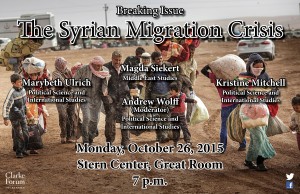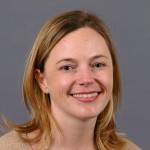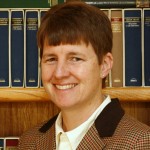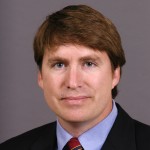 Monday, October 26, 2015
Monday, October 26, 2015
Stern Center, Great Room, 7 p.m.
Panelists:
Kristine Mitchell, associate professor of political science and international studies, Dickinson College
Magda Siekert, lecturer in Middle East studies, Dickinson College
Marybeth Ulrich, professor of government, U.S. Army War College
Andrew Wolff (moderator), assistant professor of political science and international studies, Dickinson College
Since March 2011, 49% of the Syrian population have migrated from the country, fleeing the brutal dictator, Bashar al-Assad, the rise of jihadists, and the proxy war between regional and world powers to seek refuge in Europe and most recently, the United States. This is the largest displaced persons population in history. With the war and turmoil in Syria only intensifying, Syrian refugees are continuing to make the treacherous journey to surrounding countries by any means possible. This panel, comprised of Dickinson and U. S. Army War College faculty members, will explore the international security, diplomatic and social implications of the displacement and how the world powers are responding to the crisis.
This event is sponsored by the Clarke Forum for Contemporary Issues and is a Clarke Forum Student Project Manager initiated event.
Biographies (provided by the panelists)
 Kristine Mitchell is associate professor of political science and international studies at Dickinson College. Her teaching and research focus is European and EU politics. Mitchell is interested in the social and political consequences of migration to, and within, Europe since 1945. In the contemporary period, she is particularly interested in the impact of public opinion on party positions and policies about immigration and free movement and the tensions between national and European/EU policies to deal with immigration into Europe.
Kristine Mitchell is associate professor of political science and international studies at Dickinson College. Her teaching and research focus is European and EU politics. Mitchell is interested in the social and political consequences of migration to, and within, Europe since 1945. In the contemporary period, she is particularly interested in the impact of public opinion on party positions and policies about immigration and free movement and the tensions between national and European/EU policies to deal with immigration into Europe.
 Magda Siekert is lecturer in Middle East studies at Dickinson College. Her teaching and research interests include teaching Arabic language and culture, and U.S. public diplomacy. She has served as a U.S. diplomat, spokesperson, and chief counsel with the Department of State with postings in the Arab world, Africa, Europe, and Latin America. She holds a master’s degree in Arabic Studies from Georgetown University, a master’s degree in teaching from the American University in Cairo, and she has completed all the coursework and comprehensive exams for a doctorate in Arabic Studies and linguistics at Georgetown University where her research focused on the evolution of the women’s movement in Egypt in the 20th century.
Magda Siekert is lecturer in Middle East studies at Dickinson College. Her teaching and research interests include teaching Arabic language and culture, and U.S. public diplomacy. She has served as a U.S. diplomat, spokesperson, and chief counsel with the Department of State with postings in the Arab world, Africa, Europe, and Latin America. She holds a master’s degree in Arabic Studies from Georgetown University, a master’s degree in teaching from the American University in Cairo, and she has completed all the coursework and comprehensive exams for a doctorate in Arabic Studies and linguistics at Georgetown University where her research focused on the evolution of the women’s movement in Egypt in the 20th century.
 Marybeth Peterson Ulrich is the professor of government in the Department of National Security and Strategy at the U.S. Army War College. She received her Ph.D. in Political Science from the University of Illinois and a B.S from the U.S. Air Force Academy where she was a Distinguished Graduate in the Class of 1984. Her research interests are focused on strategic studies with a special emphasis on civil-military relations, European security, and national security democratization issues. Among Dr. Ulrich’s many publications is a book, Democratizing Communist Militaries: The Cases of the Czech and Russian Armed Forces. Professor Ulrich retired from the Air Force Reserve in 2014 at the rank of Colonel. In her final assignment she served as the reserve air attaché to the Russian Federation.
Marybeth Peterson Ulrich is the professor of government in the Department of National Security and Strategy at the U.S. Army War College. She received her Ph.D. in Political Science from the University of Illinois and a B.S from the U.S. Air Force Academy where she was a Distinguished Graduate in the Class of 1984. Her research interests are focused on strategic studies with a special emphasis on civil-military relations, European security, and national security democratization issues. Among Dr. Ulrich’s many publications is a book, Democratizing Communist Militaries: The Cases of the Czech and Russian Armed Forces. Professor Ulrich retired from the Air Force Reserve in 2014 at the rank of Colonel. In her final assignment she served as the reserve air attaché to the Russian Federation.
 Andrew T. Wolff is assistant professor of political science, international studies, and security studies at Dickinson College. He received his doctorate in international relations from Johns Hopkins University School of Advanced International Studies (SAIS) in 2010. He also holds a bachelor’s of arts degree in politics and European history from Washington and Lee University and a master’s degree in European studies from Johns Hopkins University SAIS. He has worked as a legal staff assistant in the United States Senate, an English teacher in Prague, Czech Republic, and a European studies instructor at Johns Hopkins University SAIS. His research interests are NATO and EU security issues, transatlantic relations, U.S. foreign policy, geopolitics, and international diplomacy. His most recent publication is “The Future of NATO Enlargement after the Ukraine Crisis” (International Affairs 91:5, 2015).
Andrew T. Wolff is assistant professor of political science, international studies, and security studies at Dickinson College. He received his doctorate in international relations from Johns Hopkins University School of Advanced International Studies (SAIS) in 2010. He also holds a bachelor’s of arts degree in politics and European history from Washington and Lee University and a master’s degree in European studies from Johns Hopkins University SAIS. He has worked as a legal staff assistant in the United States Senate, an English teacher in Prague, Czech Republic, and a European studies instructor at Johns Hopkins University SAIS. His research interests are NATO and EU security issues, transatlantic relations, U.S. foreign policy, geopolitics, and international diplomacy. His most recent publication is “The Future of NATO Enlargement after the Ukraine Crisis” (International Affairs 91:5, 2015).
